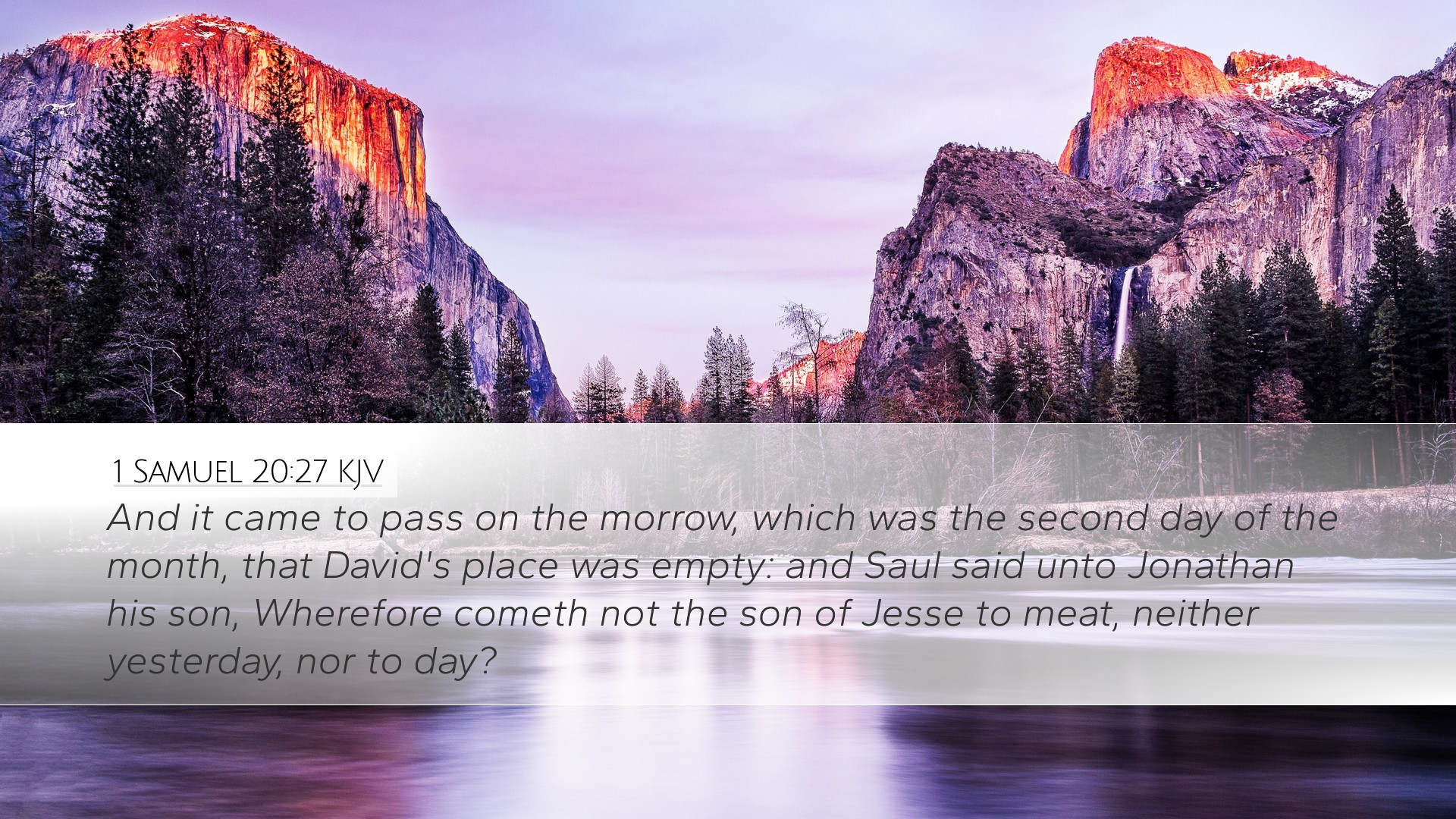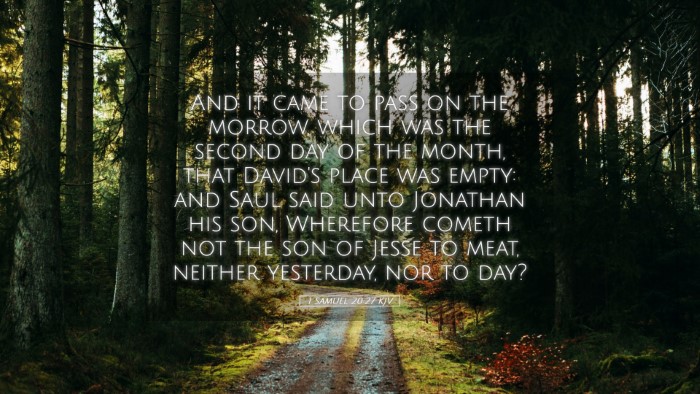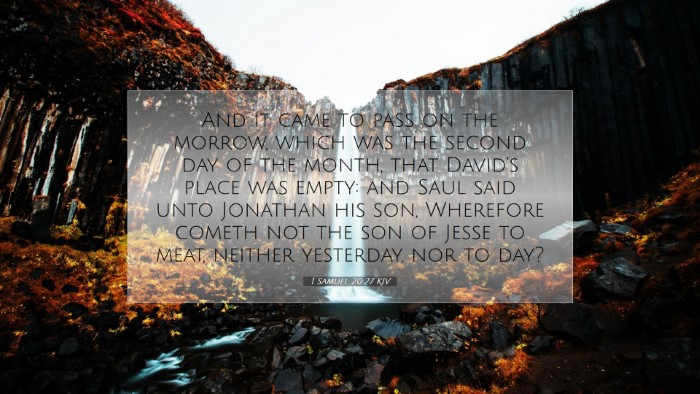Commentary on 1 Samuel 20:27
Verse Context: 1 Samuel 20 details a critical episode in the relationship between David and Jonathan. This verse specifically highlights the tension that arises from David’s absences from King Saul’s table and the implications of his choice to avoid the king's banquet.
Verse Text
“And it came to pass on the morrow, which was the second day of the month, that David’s place was empty: and Saul said unto Jonathan his son, Wherefore cometh not the son of Jesse to meat, neither yesterday, nor to day?” – 1 Samuel 20:27
Insights from Matthew Henry
Matthew Henry emphasizes the personal and social ramifications of David's absence from Saul's table. He highlights the significance of shared meals in Ancient Near Eastern culture, depicting it as a critical aspect of covenant loyalty and friendship. Henry notes that this absence speaks to a deeper reality of the estrangement between Saul and David.
- Significance of Absence: Henry discusses how David’s intentional absence is a reflection of his precarious situation; it is not merely a social faux pas, but a life-and-death decision amidst Saul's growing animosity.
- Jonathan's Role: He also points out the role of Jonathan as an intermediary and how he is caught between loyalty to his father and his friendship with David.
- Lessons on Consequences: The commentary suggests that David's choice, while necessary, comes with inevitable consequences not only for himself but for Jonathan and the broader context of Israel’s monarchy.
Insights from Albert Barnes
Albert Barnes reflects on the implications of Saul's question regarding David’s absence. He interprets this inquiry as a critical moment revealing Saul's paranoia and insecurity.
- The Nature of Saul's Character: Barnes notes that Saul's perception of David as a rival is accentuated through this absence. Thus, the verse serves to illustrate Saul's deteriorating mental state, showing how he cannot fathom the idea of David being absent without a sinister motive.
- Significance of 'Son of Jesse': The reference to David as “the son of Jesse” serves as a reminder of David’s humble origins and the dynamic of power that shifts within the narrative.
- Foreshadowing: This moment foreshadows the ensuing conflict and sets the stage for further developments in David's life as well as in Israel's historical narrative.
Insights from Adam Clarke
Adam Clarke provides a detailed historical and cultural analysis of the biblical text, focusing on the importance of the feast and the implications of David's absence.
- Cultural Context: Clarke explains that sharing a meal was not merely social but also political, indicating loyalty and unity among those present. In this light, David's absence was a profound statement against Saul's growing enmity.
- Implications for Jonathan: Clarke delves into Jonathan's dilemma. He must navigate the treacherous waters of familial loyalty while recognizing the moral imperative to protect his friend, David.
- David's Intent: The strategic nature of David's absence attests to his wisdom and foresight as he seeks to avoid confrontation, underscoring the themes of providence and divine guidance that run throughout the narrative.
Theological Themes
The theological implications of this verse are profound, offering multiple layers for pastors, students, and theologians to explore.
- God’s Sovereignty: The verse illustrates God's providential hand in steering the course of Israel's history. While Saul reigns, the divine choice is evident in David, suggesting a hidden providence at work.
- Friendship and Loyalty: The relationship between David and Jonathan exemplifies the depth of true friendship, characterized by loyalty that transcends familial ties and political allegiances.
- Moral Integrity: David’s choice to abstain from the feast can be seen as an act of moral integrity; despite the danger, he chooses righteousness over personal comfort.
Conclusion
1 Samuel 20:27 serves as a rich text for understanding the complexities of human relationships within the context of divine sovereignty. Matthew Henry, Albert Barnes, and Adam Clarke all contribute unique insights that deepen our understanding of this pivotal moment in David's life. By examining the implications of David’s absence, the role of Jonathan, and the psychological state of Saul, readers and scholars can appreciate the interplay of friendship, loyalty, and the overarching narrative of redemption in scripture.


